What we celebrate and why: Perspectives on Ramadan in 2021
By our current and former participants
Nurenisa, Glasgow (Scotland), participant in 2020/21
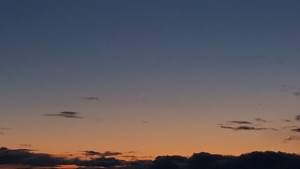
Unlike the Gregorian calendar popular in Europe, and by now used all over the world, the Islamic calendar is based on the lunar, not the solar cycle. Every month thus extends over a period of either 29 or 30 days from the sight of the new moon, in Arabic called hilal, till the next sight of the new moon.
In Islamic jurisprudence, there are different ways to establish the commencement of each Islamic month. For instance, whether a new month has officially begun can be determined by the actual sighting of the new moon at sunset (maghrib) time by reliable witnesses – the method closest to nature, but not always possible in cloudy weather –, by calculation method, or by the completion of 30 days of the previous month. There are also different scholarly opinions about whether the sighting of the moon in one part of the world should automatically count for the rest of the world (especially in today’s age of communication technology which allows us to learn about happenings at the other side of the world in real time), or whether it should be determined locally or regionally.
In consequence, every single Ramadan there is a discussion and difference of opinion between Muslims on whether the month has started yet or not, just like there very often is a difference of opinion at the end of it about whether it is Eid (the feast of ending Ramadan) yet or not. Technically, this risk of having different opinions comes up for every single Islamic month, but it is only around Ramadan and the Hajj time that people feel the implications of these differences of scholarly opinions very practically in their day-to-day life. In many Muslim countries, national religious authorities decide which determination method they use and set the date for the entire community in that country. In non-Muslim countries where there is not one single national religious authority, but many different communities of different ethnic and denominational backgrounds, these scholarly differences can sometimes lead to disruptions within families and mosque communities, some people following one opinion while others follow another, leading to some people starting Ramadan or celebrating the feast days on different days. This is often looked down upon by Muslims and non-Muslims alike; „why can’t we/they just make up their minds!?“, or “if we can’t even stand in unity for Ramadan/Eid dates, how shall we stand in unity at all?“, or: „how shall we deal with them as a religious community, if they don’t even know what they want?“ are comments you hear quite often.
Yet, I personally don’t consider these differences such a tragedy. Although I agree on the beauty of unity in celebrating important religious holidays, what is wrong with having a bit of leeway in our decisions? On the contrary, I find that these yearly discussions are also a great lesson in tolerance: These differences of scholarly opinion provide a place for different ways of reasoning and connecting to our religion, to some extent allowing for a very personal approach to worship.
For most of my life I had just gone with whatever my closest mosque community was doing, for the sake of unity and harmony, either following the Turks when I was around a group of more Turkish influenced Muslims which was often the case in Germany, or, when living with an Egyptian flatmate, following the Arab (mainly Saudi) way, etc.
Last Ramadan was my first Ramadan entirely spent in Scotland, and due to lockdown it was to be a Ramadan spent relatively isolated, without immediate connection to one or the other mosque communities as we were mainly staying at home. Like every year and everywhere there was again a controversy between the different mosques about when to start Ramadan. This is when my husband and I decided to go moon sighting ourselves, and follow the most traditional, most palpable way of determining the arrival of the month, by observing the course of the celestial bodies with our own eyes. By now, we have made it a bit of a Ramadan tradition for ourselves.
This year again, the Turkish and Arab countries had already decided to start fasting on Tuesday, as their previous month (called Sha’ban) had already reached the 30 days and they now legally needed to start the next month. But since we had started the previous month a day later as well, we were only on the 29th day of it and hence had leeway to observe the moon. And indeed, this year again, we had to set out twice as the moon was not yet visible on the first day. Yesterday night, we drove up a hill close to our city for the second time and spent a good half hour or more looking at the sky in the direction of the North-East, already discouraged by the clouds that were hanging over the sunset, afraid that we might not end up witnessing the moon with our own eyes. Yet, the waiting paid off and we finally saw a very tiny, very young, very fresh crescent of the moon, the Hilal, which was even too delicate for our phone cameras to catch it properly. Yet, it was there, unmistakeable! And finally, Ramadan has come to us too!
Happy Ramadan!
Sonya, Bonn (Germany), participant in 2017/18
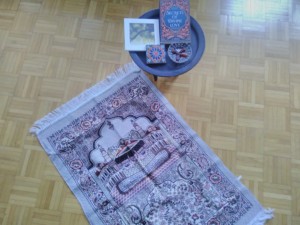
Ramadan this year is unlike any other.
In the past, I was blessed with spending the wonderful month of Ramadan with my relatives and friends in different places around the world, a time of great togetherness with a real sense of community.
Ramadan in 2020 and 2021 were marked by observing the holy month more at home than in the mosque and more online than in person. So, I consciously welcome and embrace a slowing down of my usual pace of life during this period.
It provides me with positive opportunities by increasingly focusing on prayer, self-reflection, and introspection, connecting more deeply spiritually, and studying scriptures. Nevertheless, I aim to preserve and continue the social aspect of Ramadan by gathering virtually.
Hoping for a healthy, soul-nourishing and peaceful month of Ramadan
Mai, London (UK), participant in 2020/21
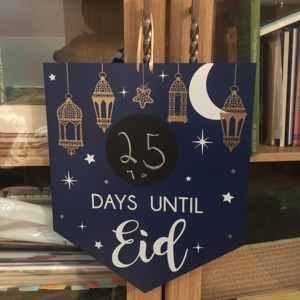
What does Ramadan mean to you?
Ramadan means a great deal to me and many Muslims, as it is a month of blessing and forgiveness. The beauty of Ramadan is families and friends come together. It is an opportunity for self-reflection and to learn to be a better person. For example, Muslims are expected to be patient, generous and grateful with the intention of continuing to do so after Ramadan. Without Ramadan, we would have not learnt to be kinder and empathetic to the poor, nor would we have had the opportunity to reflect and be thankful for all we have. Ramadan for me is a month of blessing, and I usually get a hold of the spirit of Ramadan by sharing meal with my family before I start my fast in the early morning.
How and where do you plan to spend it?
Ramadan will be taking place at home as usual regardless of the pandemic. I intend to fast the entire month, except for when I menstruate, as I will be excused from fasting. There are categories of people who are excused from fasting such as travellers, children, elderly and the sick. As fasting while menstruating is unhealthy, I and many women like me will be exempt from fasting. Nonetheless, I look forward to spending more time with my family and celebrating the month of Ramadan together.
It is my intention to fully commit myself to God and my faith by praying, helping out more, being more patient, improving myself and many more. In addition, I will pray Tarawih prayers which are additional ritual prayers that are performed after the last prayer of the day. Tarawih is not obligatory but it is highly encouraged. Many Muslims believe that by praying Tarawih, all our sins will be forgiven, which in turn we gain reward.
Most Muslims go to the mosque to pray Tarawih in congregational for more reward, while some like me pray at home.
Do you feel there is a big difference from the second Ramadan during the Covid-19 pandemic, compared to the last (the first Ramadan during the pandemic) and the years before?
Before pandemic, we would normally go outside to restaurants and share meals with friends and family or visit our extended families and friends at home to break our fasts together. Or even attending to the mosque for iftar as some mosques offer meals to their fasting attendees in addition to the congregational prayer. However, all these were restricted during the first Ramadan of the pandemic. For me, it was a somewhat bittersweet moment, because while it was surreal, it was also both lonely and peaceful to not to have a normal Ramadan.
It was certainly not easy for many Muslims, some were and still unable to visit their immediate families, and some were and still are struggling with mental health and financial issues that were severely impacted by the pandemic.
The first Ramadan during the pandemic was definitely my least favourite, due to difficulty to adjusting to the different circumstances and also being overwhelmed with the sudden changes. Having to do exam at home and not being able to attend the library to write my essay were huge struggles. I have immense regret for not prioritising my faith and not putting in every effort to improve upon my personal faith and connection with God. Here, I learnt the key to Ramadan is to be more patient and forgiving. Therefore, I feel I am very fortunate to have another opportunity to put extra effort into rebuilding my relationship with God.
I think the last Ramadan has equipped me for this Ramadan to balance my studies and work commitments from home in a healthy manner without exhausting all my energy, which will help me to rebuild.
This Ramadan will definitely be different to the last one. For instance, mosques will be opened for Tarawih prayer but with limited space, so the males in my family will feel the spirit of Ramadan again. Thus, this alone will give me the spirit and hope to attend the mosque for the first time this year. As I do not usually attend the mosque during Ramadan, since I pray at home. However, I do go to the mosque in the eve of 27th Ramadan for Laylat-ul-Qadr (the Night of Power). Although, the Night of Power could occur any odd day of the last 10 days, so I will value my time to dedicate God and to self-reflect while I carry on with everyday life. This is important, so we can make a habit of doing so after Ramadan.
On the other hand, I do miss attending Eid prayer and I hope that I will have the opportunity to pray at the mosque for this Eid. I overcome this sadness by reminding myself that god is omnipresent, so he is everywhere, so this gives me a hope.
Do you want to focus on something particular this year?
This year, I would aim to nourish my physical and mental well-beings. I hope to self-reflect and practice restraint which would eventually reduce my bad habits permanently. This definitely includes learning to be kinder to myself.
Before anything else, it is crucial for Muslims to remember that nearly 3 million people have died from COVID-19, so it is important for us to remember and pray for them and their families as this Ramadan will not be the same for them. We must reach out to them, and the people who are facing various issues. After all, the holy month of Ramadan is time for bringing communities together.
Mohammad, Berlin (Germany), participant in 2016/17 and 2018/19
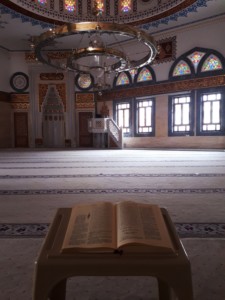
„What is the point of fasting if there are people in other regions of the world who are starving? How do the less fortunate people benefit from my fasting?” – this is what a teammate has asked me a couple of years ago. We were heading to football training during our pre-season preparation. It was in summer and we were already in the midst of the holy month of Ramadan. Actually, and this might disappoint some of you, Ramadan is not about empathizing with people who are less fortunate and cannot afford a meal as claimed by this guy. From a worldly point view, fasting may help to understand the struggle of the hungry but understanding their struggle is not the primary/supreme function of this act of worship.
Eating and drinking has become the dominant topic. However, there are hundreds of millions of hungry and impoverished Muslims who fast. So why would they commit themselves to the month of Ramadan if it was to understand the plight and struggles of the hungry?
In the second chapter (The Cow) of the Qur’an it says: “O believers! Fasting is prescribed for you – as it was for those before you – so perhaps you will become mindful of Allah” (2:183). It is the obtainment of God Consciousness (taqwa) which is the ultimate goal for Muslims committed to the holy month. Especially in these 30 days, Muslims hope to be forgiven for their previous sins, show gratitude by remembering God and by thanking Him for the sustenance and all the blessings He has bestowed upon them, and have their patience and faith strengthened. The reason for that: Ramadan is the month of forgiveness, love, hope and mercy. The month in which the Qur’an has been revealed to Prophet Muhammad (peace be upon him), is therefore the most suitable time and a very special one. Pondering on what is written in the Holy Book will allow us to deal with our faith more intensely and to stay connected with our Creator – if not to strengthen our relationship with him.
While explaining the month of Ramadan, I do not intend to erase the experience of impoverished Muslims who are fasting despite knowing what it feels like to be hungry. Yes, fasting is a process of physical purification by abstaining from food and drink. But even more important than the physical aspect, fasting serves the purpose of purifying our minds, souls and hearts. Bearing in mind the ultimate goal of gaining God Consciousness (taqwa), fasting encompasses the spiritual process. Ramadan is the time where the believers consciously take a time-out to find peace, to focus on their faith and to be reminded of the essentials in life. Since Islam values the aspect of community very highly, Muslims should therefore seek the company of the fellow believers to remind each other and to be reminded of the importance of worshipping God. In concrete terms, they go to mosques that gather the believers. Acts of worship – fasting, praying, reading Qur’an, remembering God or giving charity – are supposed to help Muslims to stay away from evil acts and sins. This in return implies, for instance, the avoidance of gossip, unnecessary arguments or things that are tempting for eyes and ears. Personally speaking, I like to spend my time in mosques where I meet my brethren in order to focus on the acts of worship and to withdraw from the evil. The reason for that is: Besides constantly worshipping God, the holy month embraces a societal aspect by suggesting us to show mercy towards others and to help those in need. Long story short: The holy month is an opportunity for every believer to become a better version of himself or herself. Ramadan is not supposed to be the final spurt but is just the starting point for us to become better and more God conscious people – yes, it can be compared to a successful pre-season preparation in sports.
Ramadan is comparable with a pre-season preparation in sports where we set the basis for the next 11 months. We train our fitness and study every detail, such as tactics, that we will keep in mind and call up throughout the year. As a passionate footballer, I know too well that a season without a proper preparation is very likely going to be a disaster. Hence, preparing yourself for the 11 months afterwards is what matters. Keep that in mind! This is my understanding of Ramadan and this is the role the holy month has been playing for me since my teenager years. Reading the Qur’an and pondering on God’s message, attending (virtual) lectures and reading reminders are my way of training, studying and of setting the foundation for a hopefully successful year – with the objective of obtaining God Consciousness.
As much as I can, even during the Covid-19 pandemic, I will be visiting mosques and be spending my time there in order to worship my Creator, to meet fellow Muslims and to feel the Ramadan vibe when congregating for the Taraweeh prayer, the extra prayer at night. Nevertheless, this year’s and last year’s Ramadan will differ from all the previous ones. Why? Breaking your fast at someone else’s place or dining outside with beloved ones and friends will not be possible due to the understandable circumstances. This in return will have us break our fast with our families in our own homes. That is why I am looking forward to Ramadan with mixed feelings. On the one hand, we will not have the opportunity to eat with friends and to invite or to be invited by others. On the other hand, bonds with our family members will additionally be strengthened through Ramadan and our joint Iftar meals. Luckily, in comparison to the previous Ramadan, Muslims here in Berlin/Germany and – if permitted by local authorities – in other regions will have the chance to visit the mosques to attend prayers and to have that fulfilling Ramadan feeling. Last year, namely, Muslims around the world were spending their Ramadan entirely at home, hoping for restrictions to be eased soon while being in lockdown mode.
On the occasion of the holy month, I have set some personal goals and made some resolutions. I do not want to share them in detail since it is something I try to keep between myself and my Creator. However, all I can say about my particular focus for this year’s Ramadan is: Starting With the inner and outer purification process with Ramadan as the starting point, I want to become a better version of myself and live a life that fulfills me and simultaneously pleases my Lord. The holy month, namely, is the time of self-realization, self-discovery and mindfulness.
Irem, Malmö (Sweden), participant in 2020/21
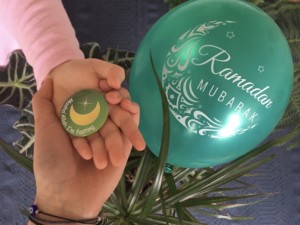
Ramadan, or as we call it in Turkish, ‘the Sultan of 11 months’ is approaching once again. The month when we turn into our souls while we also share things we can share with others. The month means many different things for all Muslims around the world. The month that is the beginning and the end of many things for Muslims who are awaiting this time every year. Even though Ramadan is not the beginning nor the end of the Islamic calendar, Muslims value this month so much as it is the lunar month that the holy Quran was revealed. Therefore we take this holy beginning as an opportunity to start a good habit, or leave a bad one, be more polite and help more to those in need. To be more aware of our Muslim identity besides the other identities that shape us and be proud of it, to be thankful for everything we have and do not have. In short, to be a better version of ourselves compared to the nearest time we can remember, and so on.
Personally, I welcome every Ramadan with a different approach unintentionally. I also take this period as the perfect opportunity to fix, change, maintain or reflect on something important to me. For example, I declared the last Ramadan, AKA Ramadan during the pandemic, as ‘the month of self-reflection’ for myself since we had a very different one compared to the previous ones. This was a Ramadan without gathering with people for Iftar (evening meal for breaking the fasting after sunset), Suhoor (the meal before the sunrise before starting fasting), and without coming together to pray. Being away from maybe the most joyful part of Ramadan was sad. However, it made me realize a lot of things. First of all, I did focus on the deep meaning of this month more than ever. This is a month when we stop eating and drinking (yes, not even water!) from sunrise to sunset (fasting is only obligated for the perfectly healthy and capable for Muslims after they reached puberty, so ill people, pregnants, people who are traveling and kids are not obligated for this specific worship) no matter where we are on the earth, also stay away from sexual relations, avoiding the use of bad words, trying to share with the ones in need and with people from our surrounding, etc. This month is one for us Muslims to be thankful for everything and be more considerate about our place in life. Being together and sharing is strongly encouraged in Islam and it is even more emphasized during Ramadan. Then, experiencing Ramadan during the pandemic taught us the importance of the community and people around us in the time we always look forward to sharing with others.
I will be honest here, I was the kind of person who sometimes complains about the big gatherings during Ramadan, being forced to eat more than your capacity by the super lovely and caring Turkish aunties, running to Tarawih (the pray between Iftar and Suhoor) which is longer than the usual prays, having very vibrant and busy hours during a short time between Iftar and Suhoor. Last year none of them happened. No more crowds, no more hurrying to a mosque or someone’s place to pray, and no more being forced to eat everything on the table. That made me realize the importance of pretty much everything I took for granted, and I learned this from a global problem like so many people. Also, it taught me the importance of the people I am living together with and how lucky I am to have people around me that I can still have the joy of sharing.
Last year we were hoping for this year that things will be ‘fine’ again, but it seems like we will experience a similar Ramadan compared to last year. Although I am sad about it, this time I am prepared for another bittersweet Ramadan! Meaning that I pretty much know what is waiting for me and how I can use this time. Seems like my last ‘self reflective Ramadan’ was quite successful! Now, another Ramadan is ahead and hopefully, Inshallah, it will be the month of me focusing on my privileges and my responsibilities as -still- a young Muslim woman living in Europe who has access to a lot of services which I can use to be a better and useful person for people. There is no quantity or closeness requirement here because I know my religion values good intention more than everything, so I will try to keep my intention as good and as wide as possible. Then I know, even if I can not achieve, this will help me to find my way around in this Ramadan and my whole life.
Finally, since experiencing a global pandemic taught all of us to focus on and enjoy small things, I will apply that to this year’s Ramadan as well! For example, I will do things I have never done before like decorating my room with lights and a few balloons that I steal from my five-year-old niece that says ‘Ramadan Mubarak’, and be proud of myself that I am fasting despite the very long days where I live in Sweden, and look at the pin that I got as a funny and lovely gift from my sister which you can see above in my niece’s hand. I put this gift in front of my desk in order to remind myself that my belief makes me stronger while I am working during Ramadan.
So yes, I will focus on small things but I will think about the massive things as well. Things I can not change while thinking but things I can pray for during this time. I will be praying for an end to all the inequalities in the world, all refugees who lost their lives while they were trying to pass borders to have a better future, all the kids who can not access food, clean water, and education, for all dictatorships and another global disease named patriarchy to end. I will pray for everyone who is heavily affected by COVID and I will pray for this pandemic to end so we can come together, share big hugs and pray for them and reflect on them altogether.
Ramadan Kareem!
Semra, Cologne (Germany), participant in 2015/16
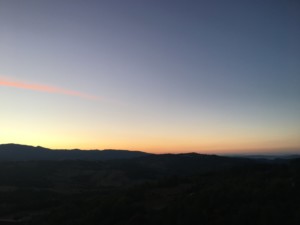
One of my favourite ways of searching for God is in the transitions between day and night, light and dark. While the beauty of the sun rising and setting often silently passes by in the hectic daily routine, during Ramadan, everything turns around these two moments. The day breaking in sheds light on the absence of so many things taken for granted: the morning coffee, the afternoon run, the pace of time, and for some, the sharpness of the mind, the quickness of the wit. Especially during the first days, I always feel poor. In the sense that my needs are, like me, part of a cycle of life, of a grace I receive – close to touch, but far beyond me. And with this poverty, sometimes there comes empathy, understanding that I can also be a hand of grace others are waiting for. Sometimes, there comes appreciation, feeling thankful for everything gifted to me, most of all just being, my very own being under the sun. And of course for the night to break in, the relief that comes with it, the taste of water that makes me the richest person on earth. Ramadan nights are always full of light, full of joy. To be honest, with the curfews under discussion, the thought that we will not be able to share this joy as we used to, feels hard. There are no other words, there is no consolation for this. But in light of the years we had and hopefully the many more to come, I have decided to embrace the way it is. To silently watch the heavens, when most people are asleep and think that life is full – of loosing and of gaining, of going down and rising up, dusk and dawn. And such great beauty that lies within. To all those who will watch with me, and to all those who will celebrate with us: Have a blessed Ramadan!
Alend, Saarbruecken/ Hamburg (Germany), participant in 2019/20
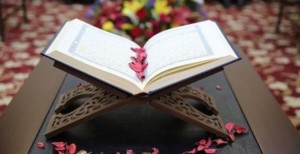
What does Ramadan not mean to me? Being a pillar of Islam, it means so much. My approach to it is reflected by the following Vers in the holy Qur’an: “The month of Ramadan in which was revealed the Qur’aan, a guidance for mankind and clear proofs for the guidance and the criterion (between right and wrong)”, 2:185.
I plan to spend almost half of the Ramadan with my family in Saarbrücken and the other half in Hamburg, where I’m currently living. How do I wish to spend Ramadan? Due to the pandemic there is not much opportunity to gather in the mosque, where we would revive the night by praying and worship in pre-pandemic times. However, all of the rituals are now basically followed at home (depending on regional restrictions) – but the quality of the rituals does not decrease in any way!
Whilst we witnessed an absolute uncertainty concerning the practice of Ramadan flanked by the total closure of mosques during the first year, now we at least have hope given the progress with vaccinations. Also, in most locations, mosques are allowed to open with strict safety measures. This is also huge advantage as opposed to last year. Finally, I would like to use this opportunity of open mosques and focus more on building a deeper relationship to God, which should be sincere and kept regardless of and especially in turbulent times.
